These 20 Retailers May Go Bankrupt in 2020
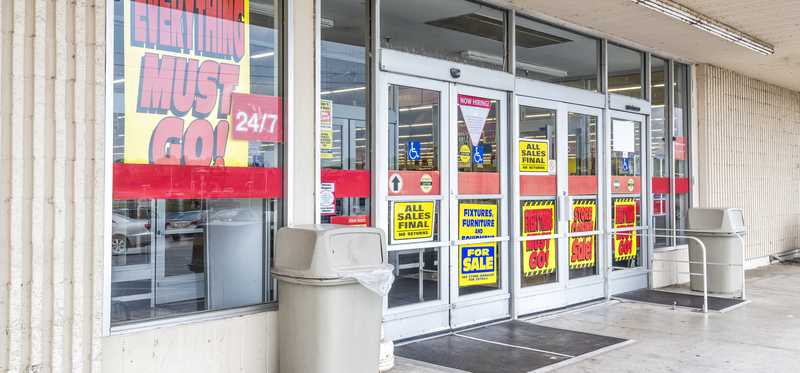
These 20 Retailers May Go Bankrupt in 2020
It's curtain call for more retailers this year
Despite fears over the coronavirus outbreak, the U.S. economy remains strong. Stocks are at all-time highs; consumer confidence is up, and unemployment is down.
Nonetheless, the retail industry continues to transition to the e-commerce era. Department stores and mall-based chains are struggling, losing sales and closing stores, and some are even on the brink of going out of business entirely.
Keep reading to see 20 retailers that are on the brink of bankruptcy, including a few that have already gone into default this year.
5 Winning Stocks Under $49
We hear it over and over from investors, “I wish I had bought Amazon or Netflix when they were first recommended by the Motley Fool. I’d be sitting on a gold mine!” And it’s true. And while Amazon and Netflix have had a good run, we think these 5 other stocks are screaming buys. And you can buy them now for less than $49 a share! Simply click here to learn how to get your copy of “5 Growth Stocks Under $49” for FREE for a limited time only.
Previous
Next
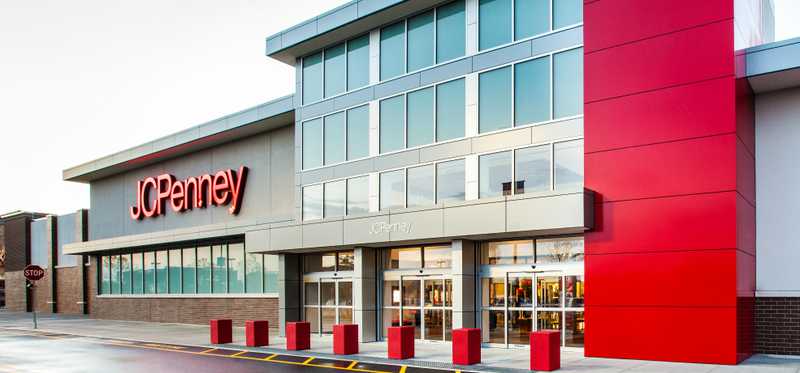
1. J.C. Penney
J.C. Penney (NYSE: JCP) hasn't been the same since 2012. That was when former Apple stores chief Ron Johnson came in and upended Penney's traditional discounting model in an attempt to revamp the business. It didn't work. Comparable sales plunged 25% that year, and the company has been treading water or sinking since then.
The company has $4 billion in debt on its balance sheet, and continues to see sales fall as comparable sales dropped 7.5% in November and December. Penney is also dealing with the threat of being delisted from the New York Stock Exchange, and said it may be forced to do a reverse stock split.
Without an improvement in its financial performance, J.C. Penney's bankruptcy isn't a question of if, but when.
Previous
Next

2. Pier 1 Imports
Pier 1 (NYSE: PIR), the ailing home goods retailer, said earlier this year that it would close about half its locations, a reflection of years of declining sales and compounding losses. In its third quarter, comparable sales fell 11.4% and the company reported a loss of $59 million.
Pier 1 has $258 million in debt on its balance sheet, and current liabilities exceed current assets, meaning it owes money within the next year that it doesn't currently have. The store-closing plan, which includes up to 450 locations, will ostensibly help the company avoid bankruptcy for now, but if it continues to lose money, there may be no choice.
Previous
Next

3. Rite Aid
The nation's No. 3 drugstore chain has seen its stock plunge as the company has been unable to escape the massive debt burden it's under. An acquisition by Walgreens was blocked by the Federal Trade Commission, which led to the sale of about half of its stores to its rival.
Today, Rite Aid (NYSE: RAD) has $3.6 billion in debt, and it expects a loss of $174 million-$204 million this year as it undertakes a number of restructuring initiatives. The stock surged following a better-than-expected third-quarter earnings, but the company is still only worth $700 million, a sign investors expect its challenges to continue.
Previous
Next

4. Ascena Retail Group
Ascena Retail (Nasdaq: ASNA), the parent of apparel chains like Ann Taylor and Lane Bryant is a classic victim of the e-commerce boom. With thousands of stores nationwide, the company simply has more retail space than it needs. It sold Maurice's last year and also closed down all of its Dressbarn locations.
The company has $1.34 billion in debt on its balance sheet, and was recently forced to do a 1-for-20 reverse split after it fell out of compliance with the Nasdaq.
Ascena many continue to downsize or sell off some chains in order to avoid going bankrupt as the company has struggled for years to turn a meaningful profit. For the current quarter, it expects an adjusted operating loss of $40 million-$60 million.
ALSO READ: 3 Big Retail Bankruptcies of 2019 -- and 4 More That May Be Next
Previous
Next

5. Neiman Marcus
Privately held Neiman Marcus has been on the bankruptcy watchlist for years. After a private-equity leveraged buyout and being passed from one owner to the next, the high-end department store chain is loaded with debt.
In the company's third-quarter earnings report released last June, it held $4.5 billion in debt, and, though the core business is profitable, its interest payments are so steep that the company has a bottom-line loss. Currently, its annual interest expenses total more than $300 million.
Neiman Marcus's best chance at long-term health may be to declare bankruptcy in order to renegotiate with its lenders and relieve some of its debt burden.
5 Winning Stocks Under $49
We hear it over and over from investors, “I wish I had bought Amazon or Netflix when they were first recommended by the Motley Fool. I’d be sitting on a gold mine!” And it’s true. And while Amazon and Netflix have had a good run, we think these 5 other stocks are screaming buys. And you can buy them now for less than $49 a share! Simply click here to learn how to get your copy of “5 Growth Stocks Under $49” for FREE for a limited time only.
Previous
Next

6. J. Crew
Like Neiman Marcus, J. Crew was a once-strong brand that's been loaded up with private-equity debt.
J. Crew today has $1.7 billion in debt, and faces an exorbitant annual interest expense around $150 million that has prevented it from turning profitable.
The retailer's latest plan is to take its popular Madewell brand public, which could generate cash to help it pay down debt, but would also leave J. Crew with just its struggling namesake chain.
Though the idea has been approved by creditors, the IPO market has been tough to crack since the WeWork debacle so J. Crew may need a Plan B if that doesn't work out.
Previous
Next

7. Christopher & Banks
Another struggling apparel retailer, Minnesota-based Christopher & Banks (NYSE: CBK) has been on the verge of bankruptcy for years.
Through the first three quarters of 2019, the women's apparel retailer has lost $11.6 million, and has $79.8 million in current liabilities compared to just $57.7 million in current assets, meaning it could soon run into trouble funding its business operations.
Though comparable sales turned positive recently, rising 4.5% in the third quarter, there's no question that the company faces considerable challenges ahead.
Previous
Next

8. Fairway
The beloved New York-based supermarket chain filed for Chapter 11 in January, its second bankruptcy filing in just a few years as the grocer also failed as a publicly-traded company earlier.
Overexpansion, private equity debt, and competition from the likes of Trader Joe's and Whole Foods have continued to saddle the company with problems.
Fairway has agreed to sell as many as five of its stores to Village Super Markets, and could close its remaining stores if no other buyer emerges.
In 2019 through November, it had lost $66 million and had more than $227 million in debt.
Previous
Next

9. Tailored Brands
The parent of Men's Wearhouse and Jos. A. Bank, Tailored Brands (NYSE: TLRD) has been seeing sales dwindle for years, and in recent months, the company has made paying down its debt burden its top priority.
It suspended its dividend, and sold both its corporate apparel segment and Joseph Abboud brand to free up cash and alleviate its debt burden.
Nonetheless, the company still faces $1.1 billion in debt, comparable sales are falling, and it expects a loss this year.
Tailored Brands isn't in the clear yet.
ALSO READ: Tailored Brands Makes the Wrong Fashion Statement
Previous
Next

10. Stage Stores
Stage Stores (NYSE: SSI) has been on a wild ride over the past few months. The stock went from $1 to nearly $10 as a plan to convert many of its stores to Gordman's off-price stores seemed to be paying off as comparable sales soared 17.4% in the third quarter.
However, that boom promptly came to a halt over the holiday season when comparable sales rose just 1.4%. Over the last month, the stock has plunged and now trades at barely more than $1.
Meanwhile, the company expects an adjusted loss of close to $40 million for the year, and has $360 million in debt on its balance sheet. If the company's recovery continues to fade, it will likely be forced to close more stores and possibly consider bankruptcy.
5 Winning Stocks Under $49
We hear it over and over from investors, “I wish I had bought Amazon or Netflix when they were first recommended by the Motley Fool. I’d be sitting on a gold mine!” And it’s true. And while Amazon and Netflix have had a good run, we think these 5 other stocks are screaming buys. And you can buy them now for less than $49 a share! Simply click here to learn how to get your copy of “5 Growth Stocks Under $49” for FREE for a limited time only.
Previous
Next
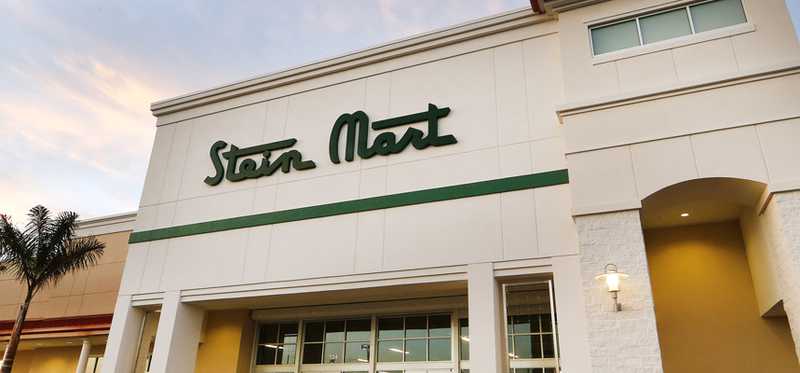
11. Stein Mart
Another ailing department store chain, Stein Mart (Nasdaq: SMRT) is also trying to fend off bankruptcy.
The company has been losing money for years, and carries $170 million in debt. However, Stein Mart has just entered an agreement to sell itself to Kingswood Capital Management for $0.90 a share, or about $44 million.
Though that should stave off bankruptcy for now, as we've seen, private equity firms don't have the best track record with keeping retailers afloat. Kingswood could also decide that bankruptcy could be the best way to extract value from the assets.
Previous
Next
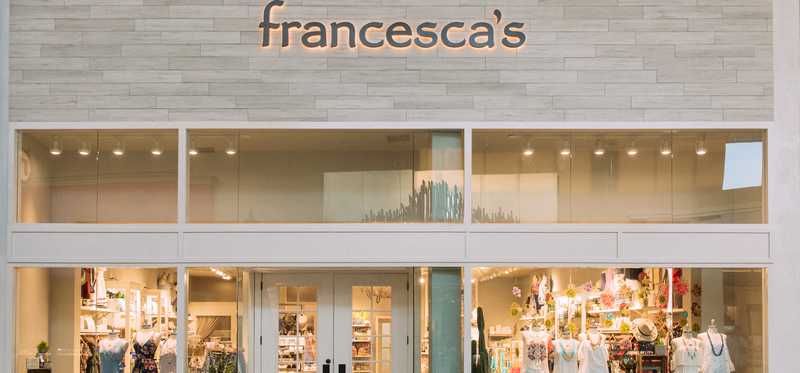
12. Francesca's Holdings
Another one of retail's biggest collapses in recent years is Francesca's Holdings (Nasdaq: FRAN). Comparable sales have plunged along with the stock price, which is down 96% over the past three years.
Though Francesca's only has a modest amount of debt on its balance sheet, at $18 million, the company has lost $13.5 million through the first three quarters.
If that pattern continues, the boutique retailer could be forced into bankruptcy.
Previous
Next

13. Express
Mall-based apparel chain Express (NYSE: EXPR) has faced many of the same challenges as other retailers in recent years.
The company has seen sales dwindle and brought in a new CEO to turn around the business recently.
Shares have recovered some of those losses in recent months, and Express doesn't have any debt, but it has nearly $1 billion in lease liabilities.
Through the first three quarters, the company lost $22.8 million. Though it should make up some of those losses in the fourth quarter, it said it expected comparable sales to fall 3% in the quarter. Express also plans to close 100 stores by 2022 as part of its turnaround plan, but that may not work out as it hopes.
Previous
Next

14. Earth Fare
Natural foods chain Earth Fare filed for Chapter 11 two weeks ago, saying it plans to close all of its stores and shut down the business.
The organic grocer had $138 million in debt, and owed $9.6 million to United Natural Foods, one of its suppliers.
Like Fairway, North Carolina-based Earth Fare seemed to struggle with a rise in competition in the grocery sector. Earth Fare was owned by Oak Hill Capital Partners, a private equity firm.
Previous
Next

15. J. Jill
Women's apparel retailer J. Jill (NYSE: JILL) went public just a few years ago, but it's already facing serious challenges. The stock is down 90% since then. Comparable sales fell 7% in its most recent quarter, and the company has lost $90 million through the first three quarters.
With $236 million in debt on its balance sheet, if it continues down its current path, its fate may be sealed.
Previous
Next

16. GNC
GNC (NYSE: GNC) may be the poster child for overstored retailers taken down by e-commerce. The company has over 5,000 stores in the U.S., but Americans no longer have to visit a store to buy nutritional supplements.
The stock is down 95% over the last five years as comparable sales have consistently fallen and its profits have evaporated.
The retailer has $859 million in debt and has more than $100 million in annual interest expense, which is threatening to wipe out all of its profits.
5 Winning Stocks Under $49
We hear it over and over from investors, “I wish I had bought Amazon or Netflix when they were first recommended by the Motley Fool. I’d be sitting on a gold mine!” And it’s true. And while Amazon and Netflix have had a good run, we think these 5 other stocks are screaming buys. And you can buy them now for less than $49 a share! Simply click here to learn how to get your copy of “5 Growth Stocks Under $49” for FREE for a limited time only.
Previous
Next

17. Lucky's
Yet another niche organic grocer has already filed for bankruptcy this year. Lucky’s went into liquidation at the end of January as it struggled to compete with Whole Foods, Publix, and other larger chains.
Kroger even invested in the company back in 2016, though it said in December it would divest from the company. Lucky’s had a loss of $100 million last year and a 10.6% decline in comparable sales.
It plans to close more than 30 stores, and will sell six to Aldi, and five to Publix.
Previous
Next

18. La Senza
Lingerie brand La Senza could be the next retailer to go bankrupt. Once owned by Victoria's Secret-parent L Brands, La Senza is now being pressured by suppliers to liquidate, according to reports.
The company is currently feuding in court with its vendors and insists it's not insolvent.
MGF Sourcing has alleged that La Senza is delinquent on $10 million worth of goods. Though La Senza is still afloat for now, the situation is fluid and could change fast.
Previous
Next

19. Papyrus
The mall-based stationery chain, Papyrus, filed for bankruptcy after it overexpanded and fell under pressure from changing consumer patterns. Papyrus agreed to liquidate all 254 of its stores, and though it was profitable on an adjusted basis, it defaulted on a supply agreement. That supplier stopped sending it product, hastening its demise.
Previous
Next
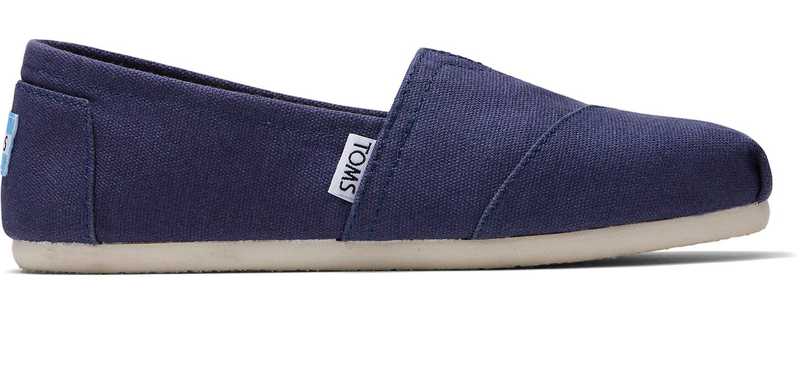
20. Toms
Toms, the brand best known for donating a pair of shoes for every pair purchased from them, is teetering on bankruptcy.
The company agreed to transfer ownership of the business to a group of creditors in January as the business will receive an infusion of $35 million as part of the deal, which will be used in part for debt relief.
Toms was facing a $300 million loan payment later this year that it was unable to meet. The deal gives Toms extra life for now, but the creditors will still have to do the hard work of repairing the business.
5 Winning Stocks Under $49
We hear it over and over from investors, “I wish I had bought Amazon or Netflix when they were first recommended by the Motley Fool. I’d be sitting on a gold mine!” And it’s true. And while Amazon and Netflix have had a good run, we think these 5 other stocks are screaming buys. And you can buy them now for less than $49 a share! Simply click here to learn how to get your copy of “5 Growth Stocks Under $49” for FREE for a limited time only.
Previous
Next

The industry's changing
Macy’s (NYSE: M) recently announced it would close 125 stores over the next three years, a move that's likely to pressure a number of other mall-based retailers as Macy's moves out of lower-tier malls and leaves that anchor space vacant.
Meanwhile, e-commerce is only going to get faster and more convenient, and brick-and-mortar retailers today must have an omnichannel strategy to succeed.
One thing's clear. The parade of retail bankruptcies is far from over.
Jeremy Bowman owns shares of Rite Aid. The Motley Fool has no position in any of the stocks mentioned. The Motley Fool has a disclosure policy.
Previous
Next
Invest Smarter with The Motley Fool
Join Over Half a Million Premium Members Receiving…
- New Stock Picks Each Month
- Detailed Analysis of Companies
- Model Portfolios
- Live Streaming During Market Hours
- And Much More
READ MORE
HOW THE MOTLEY FOOL CAN HELP YOU
-
Premium Investing Guidance
Market beating stocks from our award-winning service
-
The Daily Upside Newsletter
Investment news and high-quality insights delivered straight to your inbox
-
Get Started Investing
You can do it. Successful investing in just a few steps
-
Win at Retirement
Secrets and strategies for the post-work life you want.
-
Find a Broker
Find the right brokerage account for you.
-
Listen to our Podcasts
Hear our experts take on stocks, the market, and how to invest.
Premium Investing Services
Invest better with The Motley Fool. Get stock recommendations, portfolio guidance, and more from The Motley Fool's premium services.